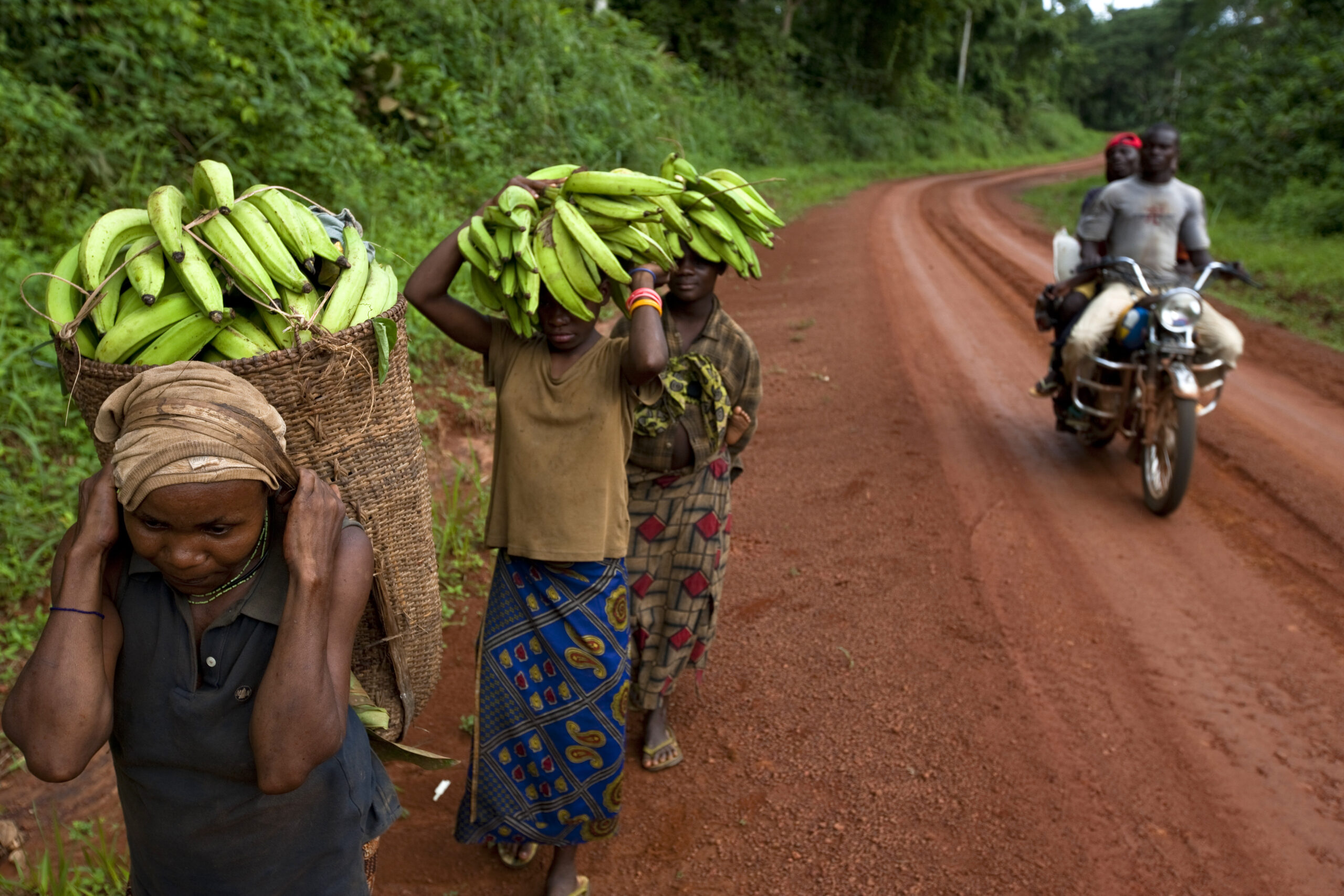
"Empowering Indigenous Communities: Transforming NTFP Production for Sustainable Livelihoods"
Nicole Yele, an indigenous Baka woman from Dioula village on the fringes of Lobeke National Park in eastern Cameroon, relies on gathering and processing Njansang (Ricinodendron heudelotii) to sustain her family. Despite its significance to her community’s livelihood, the absence of appropriate tools has hampered their processing and negatively affected the revenue from this non-timber forest product (NTFP). Yele laments, “We struggle to process Njansang due to the lack of appropriate materials. We cannot produce much because of the difficulties involved in the process.”
In response to this and other challenges in the Congo Basin, the Global Environment Facility (GEF) initiated the GEF-7 Congo Basin Sustainable Landscapes Impact Program (CBSL IP) with its Cameroon child project. This project aims to bolster the management of Cameroon’s forest landscapes to preserve biodiversity and enhance economic opportunities for forest-dependent populations. Targeting the southern forested region of Cameroon, the GEF-7 is working in the Cameroon segment of the Sangha Trinational (TNS) around Lobeke National Park to strengthen the capacities of local actors engaged in NTFP value chains.
As part of the GEF-7 initiative, 11 community-based associations across 15 villages surrounding Lobeke National Park received essential processing equipment such as push-carts, pots, basins, and storage and drying facilities. Additionally, these groups, averaging 50 members each, were granted financial support totaling FCFA 6450000 million (approximately $10,680) to alleviate financial constraints that previously impeded their operations. The grants, ranging from FCFA 330,000 to FCFA 700,000 depending on group size and managerial capabilities, aimed to address urgent financial needs related to healthcare, education, and bereavement.
Yele Nicole of GIC Wiademo, a women-led initiative in the Dioula village, expresses gratitude for the support, stating, “Thanks to the material and funds we have received, we can now gather and process Njansang nuts in huge quantities and generate bigger revenue. Baka and Bantu women will all benefit from the funds, since we work as a group.” Similarly, Mrs. Tambo Yilo, President of “Association Union faire la Force” in Yenga village, anticipates improved processing capacity and brighter prospects for NTFP actors in their community. Looking ahead, the second phase of GEF-7 support will extend to communities engaged in the gathering and commercialization of bush mangoes (Irvingia gabonensis), another valuable NTFP in southeast Cameroon. Gerard Sindemo, Coordinator of ROSE, underscores the economic significance of Njansang and bush mangoes, emphasizing their potential to generate income and improve living conditions for local populations. With guidance from ROSE and support from GEF, community groups are being organized and trained to maximize the benefits derived from NTFPs.
Through extensive community consultation and careful selection, GEF-7 aims to empower local communities, ensuring sustainable environmental management while enhancing livelihoods. Zacharie Nzooh, GEF-7 Cameroon Coordinator, underscores the project’s commitment to biodiversity protection and forest preservation, highlighting GEF’s longstanding dedication to supporting developmental projects with environmental benefits since its inception in 1991.
ABOUT US
10287 Cameroon GEF 7
IP Project Congo Basin
commonly called GEF 7 project is a child project under the
global Sustainable Forest Management Impact Program on Congo Basin Sustainable
Landscapes (Congo IP).
ALL CONTACTS
- PO Box 6776, Yaoundé-Cameroon Rue 1879, Dragage, Sortie SNH .
- Office +237 6 91 41 21 90/+237 6 91 41 21 90
- infos@gef-cbslipcam.org
- 08 am - 05 pm Fri open
- Copyright 2025
- infos@gef-cbslipcam.org









Leave a Reply